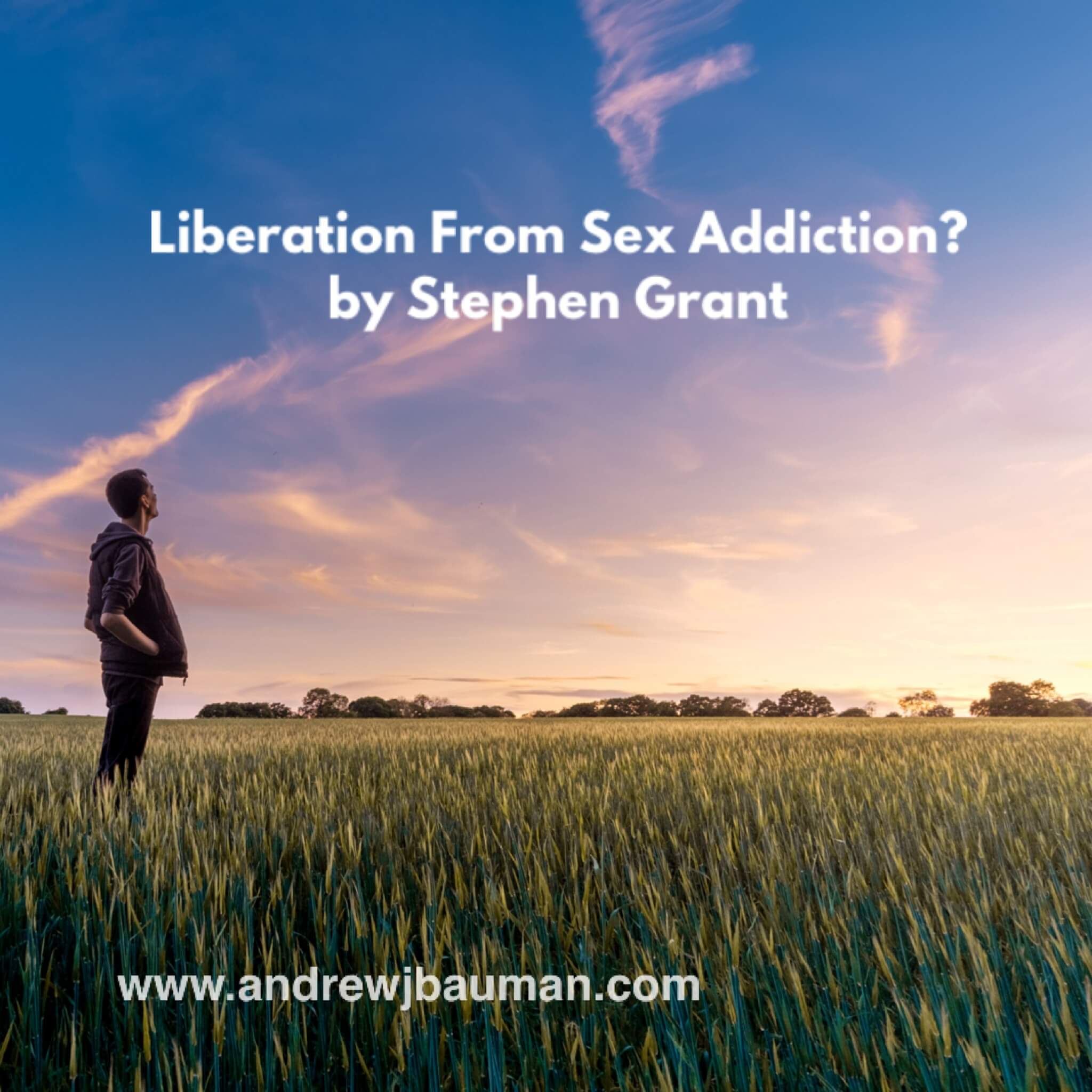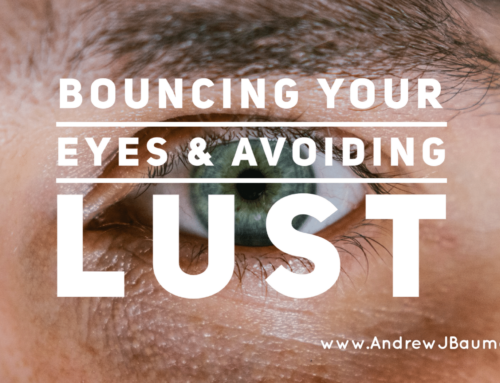Pleased to have a guest post by counselor Stephen Grant today on the blog. Read his bio and check out his work below.
As I walked up the outside stairs to the church’s classroom I couldn’t believe it was really happening. I was a dead man walking. Life as I knew it was truly over. I was on my way into my first ever 12-step/12-tradition meeting for sex addicts. A week earlier I told my wife I had slept with two prostitutes. In a few minutes, I would introduce myself to a room full of men and women. Not knowing what to do, I parroted those who went before me, uttering, “Hi, my name is Steve, I am a sexaholic. And, I need some help.” My recovery journey began. Those words were the genesis of a long, arduous journey of recovery and healing for me.
The Church didn’t know how to respond to my situation. Despite their best intentions, they actually caused harm, both in me and, in my relationship with my wife. Throughout the whole process, they thought they had the answers. I saw a Certified Sexual Addiction Therapist (CSAT) and went to meetings, got a sponsor, and began working the steps. Meanwhile, congregations read out lists of my sins to their congregations, I was in shock and shame. I immediately got “clean” for five months before starting my behaviors again. Church leadership wanted to override the advice of both my sponsor and therapist, forcing me to leave my therapist over a disagreement they had with him. Eventually, after a pattern of “acting out” every 28 days for four more months, I finally agreed with my sponsor to go to rehab.
I didn’t know that the schisms that formed in my relationship to Church leadership during these early days of recovery would lead me away from the Church of my youth and into ecclesiastical exile. Church leaders didn’t realize that their “expertise” was actually widening the gulf between my wife and me. Eventually, she realized she was done with me, and she filed for divorce. Sex addiction is messy and full of sorrow and brokenness.
Four months after coming home from rehab, my therapist who specialized in treating shame got me into a psychiatrist and I changed medications. (This was a key piece of my recovery). I was still going to meetings every day as well and had a breakthrough working the steps and for the first time in my adult life discovered freedom from cruising, masturbation, one night stands, and prostitution.
It took a number of years, being betrayed by my second wife, in much the same way I betrayed my children’s mother and adding Al-Anon, and a men’s accountability group to the rhythm of my weekly schedule to find freedom from lust. A decade later, I went back to school to become a therapist to walk with women and men who struggle with sexual addiction or who have been victimized by it — experiencing betrayal trauma from their spouse.
Sex Addiction—The Therapeutic World and the Church
Sexual Addiction is much maligned in both the therapeutic world and the Church. Though recognized internationally in the ICD codes (International Statistical Classification of Diseases and Related Health Problems), it is not yet recognized by the DSM (Diagnostic Statistics Manual). Thankfully, leading marriage and family therapists, such as Sue Johnson (Johnson, 2013) and Terry Real (Real, 2008) are recognizing its destructive power in their own practices.
The Church wants sex to reside in the realm of morality and choice. In 1997, when I confessed my behavior to fellow pastors, the message they gave me was simply, “Thanks for coming forward and confessing, stop the behavior and if your wife asks any questions at any point, answer them truthfully.”
Many therapists see the problem as the world not being “sex-positive” enough for people to live authentic and fulfilling lives. They want more things to be OK so people feel less guilty for their behaviors. The problem is that they feel that certain behaviors are taboo, and so people hold them as secrets. The problem is not the behaviors it is the secrets.
The Destructive Nature of Sexual Addiction
I want to suggest that both of these poles are destructive and aren’t paying attention to the destructive nature of sexual addiction. Addiction is defined as:
Addiction is a primary, chronic disease of brain reward, motivation, memory, and related circuitry. Dysfunction in these circuits leads to characteristic biological, psychological, social and spiritual manifestations. This is reflected in an individual pathologically pursuing reward and/or relief by substance use and other behaviors. Addiction is characterized by the inability to consistently abstain, impairment in behavioral control, craving, diminished recognition of significant problems with one’s behaviors and interpersonal relationships, and dysfunctional emotional responses. (“ASAM Definition of Addiction,” n.d.)
There is actually more research about the effects of sexual addiction on the brain than there is on gambling addiction, and yet there is not nearly the discussion around its reality. (“Relevant Research and Articles About the Studies,” n.d.)
Sex addicts are in a bind. One such addict created a metaphor, “Imagine that I have fatal or near-fatal allergic reactions to cats; and I collect them. This is what sex addiction is for me. It is killing me and I just can’t stop.”
Requirements for Recovery
On the part of the client…
There are two necessary requirements for someone to truly enter into recovery for sex addiction: 1) They must know that they are powerless over their lust, that sex is controlling them rather than they are controlling it. That sex is no longer optional for them. And, 2) equally as important, that this powerlessness is causing continuous problems for them or continual unmanageability for them in their lives. For example, though I am powerless over gravity it does not cause continual problems or unmanageability in my life.
There are many people who may be powerless over their sexual urges and compulsions, but for whom those urges and compulsions carry no consequences. Though neurobiologically, they may be addicted, they will never enter into recovery voluntarily, because they see no problem.
This does not mean that interventions or mandates to people are never effective. Often they are. However, the modalities we use to treat such people have to take their reticence into consideration, and we change our expectations. The chances for such people to make lasting change goes down drastically if they can’t/don’t acknowledge the problem. We can only hope and pray that they will come to see their unmanageability over time, and therefore give their lives over to God to heal them and keep them sexually sober.
On the part of the counselor…
It’s vital for the counselor to identify which “camp” their client falls into, in order to create a treatment plan that is effective. The International Institute for Trauma & Addiction Professionals (“IITAP,” n.d.), the certifying body for Sex Addiction Therapists, breaks sexual addiction into three primary camps:
Classic Sexual Addiction: identified because of trauma backgrounds with classic addiction symptoms
Post-modern porn addiction: missing the trauma background, but biologically addicted to porn
Morally incongruous: They do not meet the standard of addiction, but are occasionally caught by behaviors that create shame, depression, and destructive behaviors. In the same way that not every person who gets a DUI is an alcoholic, many people abuse sex without truly being an addict. Their lives may be unmanageable, but they have the power to change their behavior in and of themselves. Both powerlessness and unmanageability are required for someone to be treated effectively by sex addiction treatment.
Sorting through all these variables, teasing out addicts’ erotic templates, co-morbidity, entitlements, and drives is hard work. Then, helping addicts walk-in long-term sobriety with healthy relationships compounds the difficulty. This is why IITAP invests so much in therapists to help us figure out the best steps toward helping our clients. The end goal is for each person we treat to live with authenticity and freedom. There is hope, and it is possible!
For more information on the content found in this article, see the references below…
References
ASAM Definition of Addiction. (n.d.). Retrieved from https://www.asam.org/resources/ definition-of-addiction
IITAP. (n.d.). Retrieved from http://IITAP.com
Johnson, S. (2013). Love Sense: The Revolutionary New Science of Romantic Relationships. Columbus, GA: Little, Brown.
Real, T. (2008). The New Rules of Marriage: What You Need to Know to Make Love Work. New York, NY: Random House Digital.
Relevant Research and Articles About the Studies. (n.d.). Retrieved from https:// www.yourbrainonporn.com/relevant-research-and-articles-about-the-studies/
Stephen Grant is a Clark County CSAT-Candidate and psychotherapist. He has offices in Hazel Dell and LaCenter, WA. A preacher’s kid who was himself sexually abused, he served as a pastor and non-profit leader before confessing to several pastors that he had been acting out sexually. He started his practice in order to fund his work with pastors and missionaries in crisis. Happily married with two wonderful adult children, you are most likely to find Stephen and his wife chasing beauty from the back of their motorcycles, or playing with their 2 dogs and three cats. Find out more at www.gracefallcounseling.com.






